Coronavirus world: Covid vaccine for ‘all variants’ planned for yearly jabs
Pharma giant Pfizer says an annual Covid vaccine for all existing and future variants would be rolled out like a yearly flu shot.
Coronavirus
Don't miss out on the headlines from Coronavirus. Followed categories will be added to My News.
A Covid-19 vaccine effective against multiple variants is possible before the end of 2022 with yearly jabs ready for 2023, according to the head of US pharmaceutical giant Pfizer.
Chairman Albert Bourla said the firm was also working on a vaccine that could provide good protection for a whole year, meaning people would come back annually for boosters, as with influenza shots.
“I hope, clearly by autumn … that we could have a vaccine” that worked against not only the dominant Omicron but all known variants, he said.
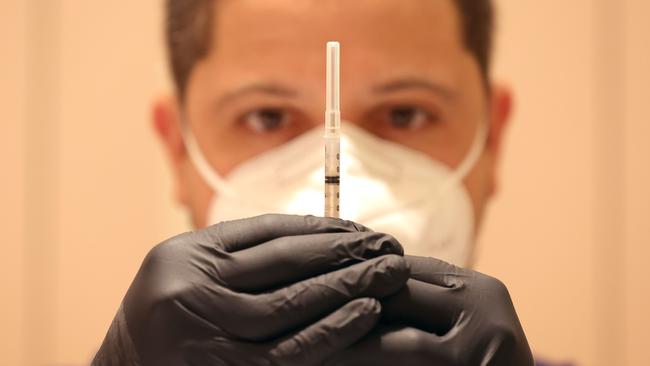
“It is a possibility that we have it by then. It is not a certainty,” he told a media briefing organised by lobby group the International Federation of Pharmaceutical Manufacturers and Associations (IFPMA).
The Pfizer-BioNTech vaccine has seen waning effectiveness against the now-dominant Omicron variant of the virus.
Bourla said there was a risk of vaccine fatigue, predicting that few people who have so far declined the chance to be vaccinated would change their minds, and suggesting that fewer people would come back for fourth doses than came forward for a third, booster dose.
“What the world really needs is a vaccine that will last a year. I think this is what will become the optimal public health solution,” he said.
“It’s way more easy to be administered and have the population be compliant with that.
“It is very challenging, technically, to do it with this virus — but we are working on it.”
The World Health Organization is aware of 153 Covid-19 vaccines that have been in clinical development — tested on humans — and 196 in preclinical development.
But so far, the UN health agency has only authorised eight vaccines and versions thereof: those made by Pfizer-BioNTech, AstraZeneca, Janssen, Moderna, Sinovac, Sinopharm, Bharat Biotech and Novavax.
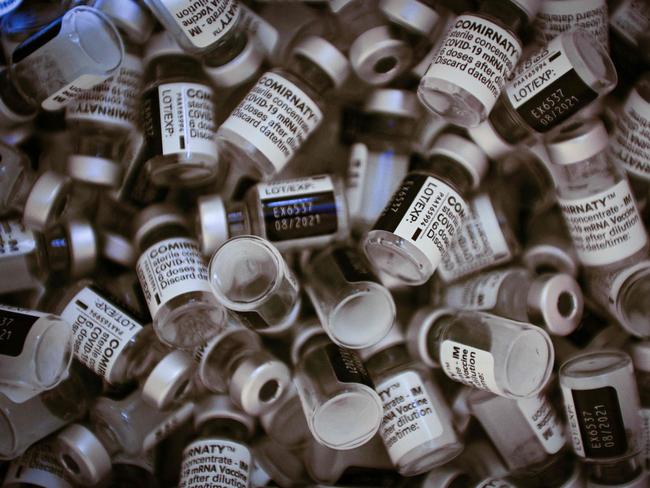
‘COVID PANDEMIC FAR FOM OVER’
The World Health Organisation’s emergency committee on Covid-19 has unanimously affirmed that the virus remains a major public health danger and insisted that countries must stop dropping their guard.
With many nations relaxing public health and social measures, and drastically reducing testing for the virus, the WHO’s group of experts on Wednesday said the pandemic was far from being at an end.
“Now is not the time to let our guard down – on the contrary, and this is an extremely strong recommendation,” committee chair Didier Houssin told a press conference.
“The situation is far from over with regard to the Covid-19 pandemic, the circulation of the virus is still very active, mortality remains high and the virus is evolving in an unpredictable way,” the French doctor warned.
“Now is not the time for relaxation on this virus, nor weakness in surveillance, testing and reporting, nor laxity in public and social health measures and no resignation when it comes to vaccination.” The committee meets every three months to discuss the pandemic and reports to WHO chief Tedros Adhanom Ghebreyesus.
It concluded that the pandemic still constitutes a public health emergency of international concern (PHEIC) – the highest level of alert that the WHO can sound.
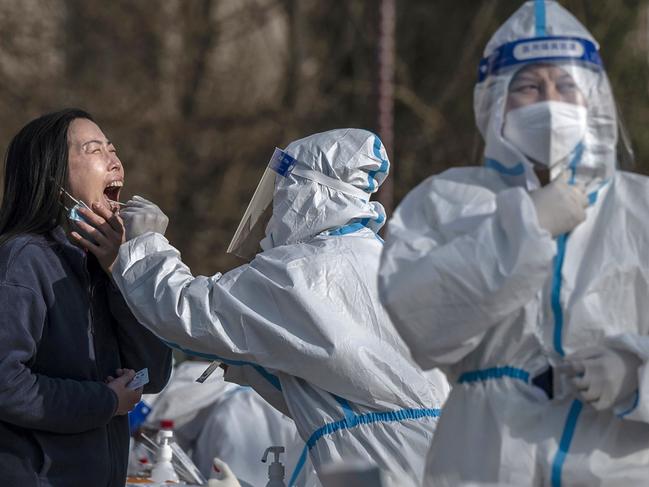
‘MIDDLE’ PHASE OF THE PANDEMIC
The committee declared the Covid-19 outbreak a PHEIC on January 30, 2020, when, outside of China, fewer than 100 cases and no deaths had been reported.
Though it is the internationally-agreed mechanism for triggering an international response to such outbreaks, it was only Tedros after describing the worsening situation as a pandemic on March 11 that many countries woke up to the danger.
“The committee unanimously agreed that the Covid-19 pandemic still constitutes an extraordinary event that continues to adversely affect the health of populations around the world, poses an ongoing risk of international spread,” it said in a statement Wednesday.
Globally, in the week to Sunday, the number of new Covid-19 cases and deaths continued to decline for a third consecutive week, with more than seven million cases and over 22,000 deaths reported.
This was the lowest number of Covid deaths since the early days of the pandemic. However, some countries are still witnessing serious spikes in cases, which is putting pressure on hospitals, said Tedros, adding that the world is “still in the middle of the pandemic”.
“This virus has over time become more transmissible and it remains deadly especially for the unprotected and unvaccinated that don’t have access to health care and antivirals,” he said.
Tedros urged people to get vaccinated and continue wearing masks, especially in crowded indoor spaces.
The WHO said the Omicron variant accounted for 99.2 per cent of samples collected in the last 30 days that have been sequenced and uploaded to the GISAID global science initiative, with the previously-dominant Delta variant now less than 0.1 per cent.
BORIS JOHNSON FINED FOR ATTENDING HIS OWN BIRTHDAY PARTY
UK Prime Minister Boris Johnson offered a “full apology” after being fined for breaching Covid-19 lockdown laws in the so-called “Partygate” scandal, but looked set to defy calls for his resignation.
Embattled finance minister Rishi Sunak and Johnson’s wife Carrie will also be fined, as the political storm following revelations of a swath of lockdown-busting parties in and around Downing Street threatens to engulf Johnson once more.
“Let me say immediately that I’ve paid the fine and I once again offer a full apology,” Mr Johnson said during televised remarks.
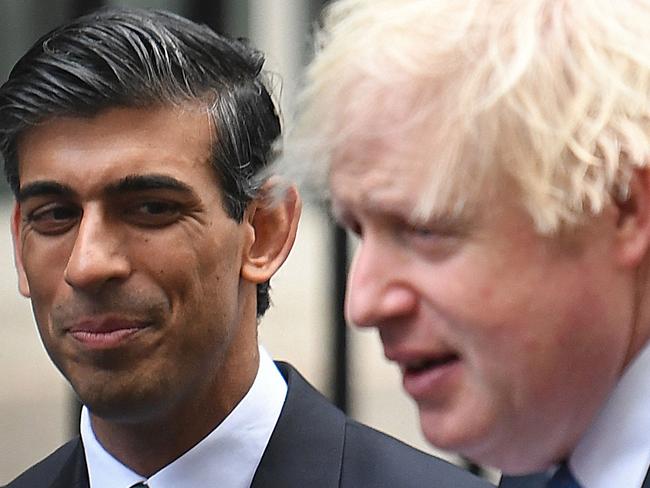
Mr Johnson’s office said his fine was for attending a surprise birthday gathering in his honour on the afternoon of June 19, 2020 in the Cabinet Room at Number 10.
The prime minister said the event lasted around 10 minutes, and denied that he had lied about not knowingly breaking the law, saying: “In all frankness at that time, it did not occur to me that this might have been a breach of the rules.
“But of course the police have found otherwise and I fully respect the outcome of their investigation,” he added.
The leader of the opposition Labour Party, Keir Starmer, swiftly called for the two most senior members of the government to resign.
“Boris Johnson and Rishi Sunak have broken the law and repeatedly lied to the British public,” Starmer tweeted.
“They must both resign. The Conservatives are totally unfit to govern. Britain deserves better.” However, Johnson said he now wanted “to get on and deliver the mandate that I have”, and early signs were that his MPs were currently sticking with him.
CHINA TO EASE RESTRICTIONS
Shanghai eased restrictions on some neighbourhoods on Monday after mounting outcry over inflexible Covid-19 rules that have locked down 25 million people, caused food shortages and left thousands in quarantine.
Authorities said they would gradually begin to allow those in areas with the least number of virus cases to leave their communities, although it was unclear how many people will be allowed out of their homes or when.
China has stuck to a policy of “zero Covid”, aiming to eliminate infections through rigid lockdowns, mass testing and travel restrictions.
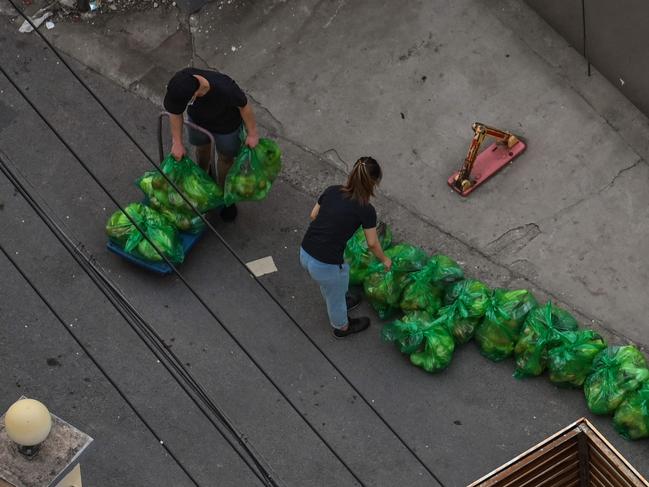
Shanghai has been placed under some of the most severe measures since the virus emerged in Wuhan in 2019, with a strict lockdown leaving many struggling to get enough food and thousands sent to centralised quarantine centres.
Officials said they would categorise communities across the city into three levels based on the number of infections.
“Differentiated prevention and control (measures)” would reflect the “actual circumstances” on the ground, Shanghai official Gu Honghui said Monday, in a move that appeared aimed at defanging rising anger over authorities’ handling of the virus.
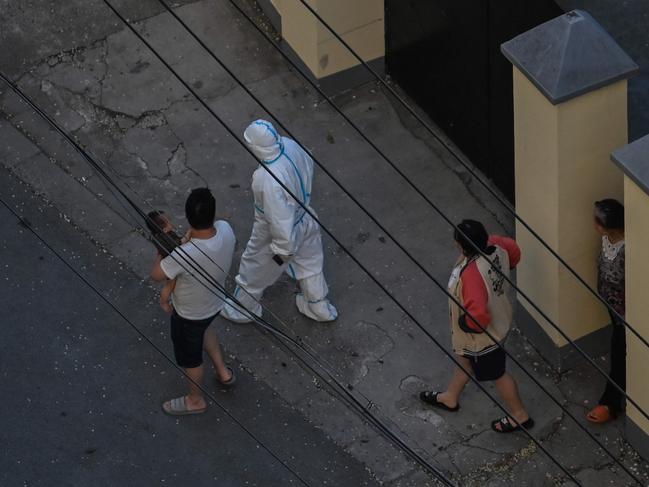
Those in “closed control areas” or “controlled management areas” would continue to be locked down in their homes or limited to their compounds.
Residential communities which have recorded no cases in the past 14 days will allow residents to leave their homes.
But as the news filtered across Shanghai, residents scrambled to decipher the precise details from their neighbourhood committees.
One southern district which falls into the category for the lowest number of cases said it would now allow residents out once a day to buy supplies.
State news agency Xinhua said people in the least restricted areas would be “allowed in principle” to move inside their subdistricts with “strict restrictions on the scale of gathering.” Shanghai resident Chris Miller said he had been told he was now free to leave the maternity centre where he has been staying with his wife since the birth of their son shortly before lockdown.
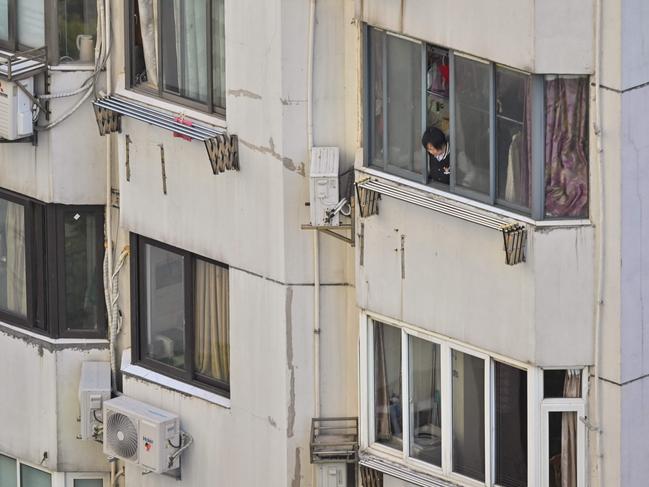
“I was the first of our building to go out,” he told AFP.
“There’s basically nothing open. I went to a pharmacy and … a lot of shelves had been picked clean but there were a few things I needed that I was able to pick up.” He said the streets were very empty but he planned to go out again. “One of the other fathers here wants to go out for some beer,” he said. The move appeared to divide opinions online, with some expressing concerns about spreading the virus further in the community.
But one resident posted pictures of a small queue forming at the gate to her community as residents waited to be let out.
Another unverified video showed a couple hugging in the middle of a car-less road as relieved residents started to wander around the street.
There were 27,509 new cases reported in China on Monday – the vast majority in Shanghai.
MOMENT CHINESE CROWD BREAKS CORDON FOR SUPPLIES
It comes as dramatic footage emerged from China showing a large crowd breaking through a cordon to get to essential supplies amid the world’s strictest Covid lockdown.
The group of hundreds can be seen pushing toward a fallen barrier and past officials dressed in blue PPE, in footage taken in Changzhou, Jiangsu.
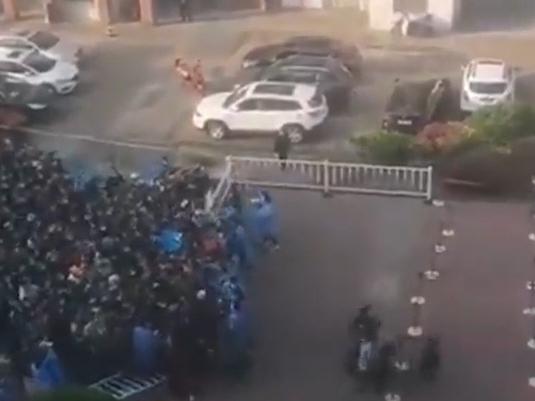
The video, posted to Twitter, was captioned: “Food riot in shanghai – china’s largest and wealthiest city – under Covid lockdown.”
However the context of the footage is in dispute amid claims the video is actually of people rushing to get PCR tests.
Beijing’s zero-Covid strategy has come under strain since March as over 100,000 cases in Shanghai have seen its 25 million inhabitants locked down in phases, inciting complaints of food shortages and clashes with health workers.
A report in the New York Post said the policy is having a drastic effect on Chinese residents with people venting their anger by yelling out of their apartment windows and screaming they are starving to death.
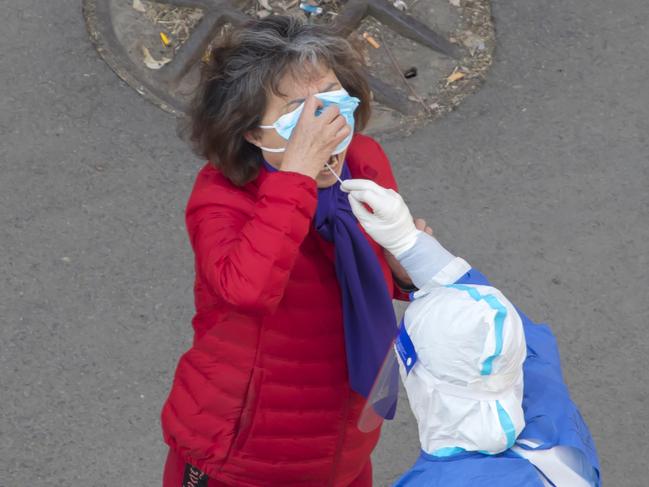
One starving lockdowner reportedly rolled his refrigerator onto his balcony and opened its doors to show the inside of it completely empty.
Other protests have taken more tragic forms, as they did in Wuhan two years ago, with some people jumping off the balconies of high-rise apartment buildings.
One video circulating in China shows a couple falling to their deaths after the husband claimed the lockdown had cost him his business.
Meanwhile, the US embassy said on Saturday it would permit non-essential employees to leave its consulate in Shanghai due to the case surge but warned citizens in China they may face “arbitrary enforcement” of virus curbs.
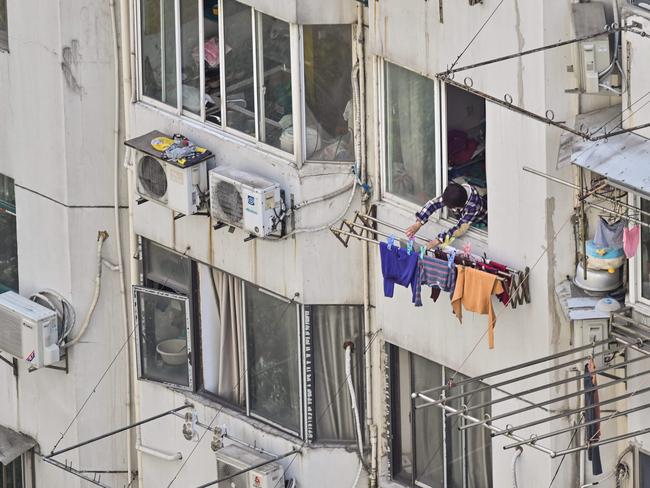
In response, Beijing expressed “strong dissatisfaction and firm opposition to the US side’s groundless accusations about China’s epidemic control policy”, according to a statement issued Saturday on the foreign ministry’s website.
“This is the US’s own decision. However, it must be pointed out that China’s epidemic control policy is scientific and effective,” ministry spokesman Zhao Lijian said.
“We have full confidence that Shanghai and other places will overcome this round of the epidemic.”
China is sticking fast to a policy of snap lockdowns, mass testing and travel restrictions to staunch the spread of the virus even as Shanghai’s daily case numbers have spiralled under an Omicron-fuelled wave.
Peking University researchers have warned that China could suffer a “colossal outbreak” that would quickly overwhelm its medical system if the authorities relaxed restrictions to a similar degree as in Europe and the United States.
It would likely lead to hundreds of thousands of new cases a day, the researchers said.
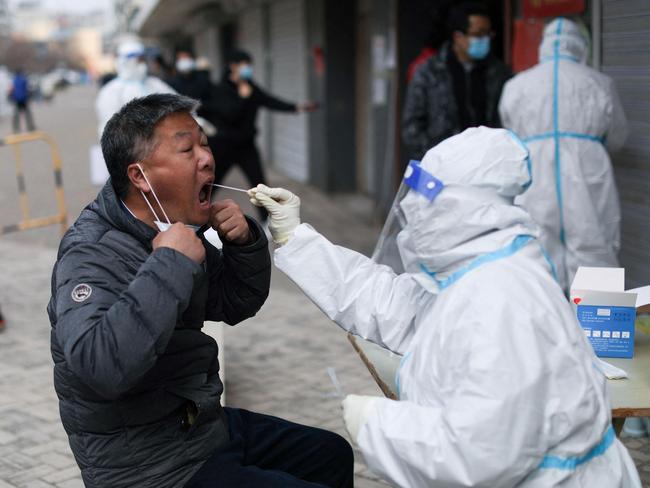
The business hub reported a record 24,943 new infections on Sunday — mostly asymptomatic, accounting for over 90 per cent of the national total.
Authorities have readied tens of thousands of new beds in over 100 makeshift hospitals as part of a policy of isolating every person who tests positive for the virus — whether or not they show any symptoms.
Locals have begun to chafe at lockdown restrictions with many taking to social media to vent anger at food shortages and heavy-handed controls — including the recent killing of a pet corgi by a health worker.
An unpopular policy of separating infected children from their virus-free parents — now softened — also triggered a rare show of public anger this week.
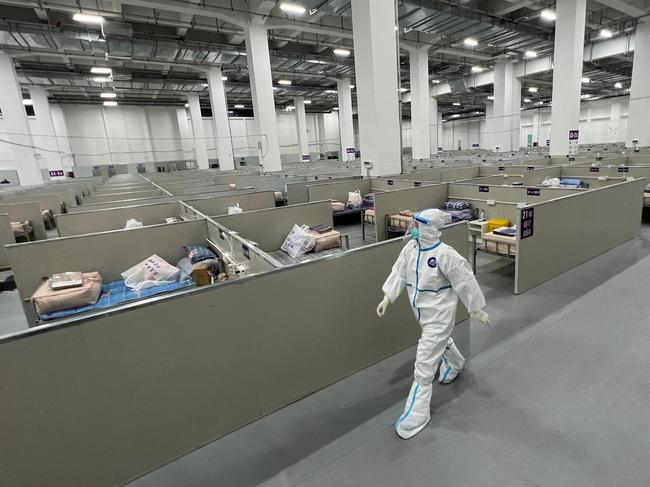
But officials are not budging on their zero-tolerance approach. City health official Wu Qianyu said during a Sunday press conference the city “would not relax in the slightest”.
Major online delivery platforms said they would bolster food stocks and draft in thousands of drivers to strengthen the supply of basic goods.
In an interview with a local news outlet on Saturday, Zhang Wenhong — a top doctor in Shanghai’s pandemic fight — acknowledged the impact on the healthcare system but said “realising dynamic zero … will help to resume normal medical order as early as possible”.
Despite being China’s most developed city, Shanghai has descended into crisis as authorities scramble to find enough beds for people who test positive.
Authorities have said 130,000 new beds are ready or under construction at makeshift venues.
About 40,000 beds are being set up at Shanghai’s landmark National Exhibition and Convention Centre.
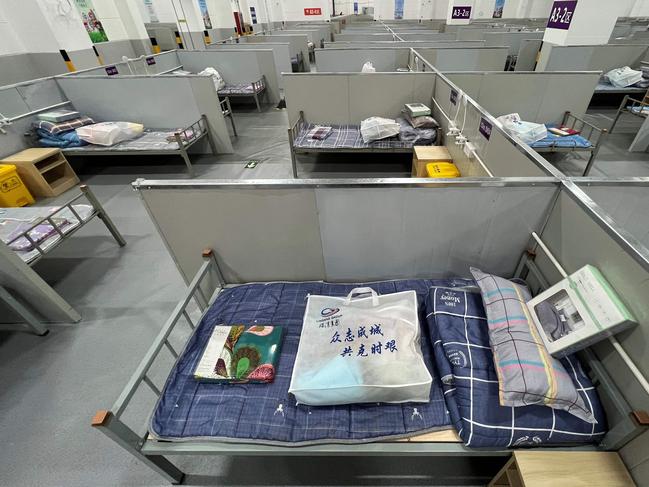
But most are currently filled by people with mild symptoms or none at all. Meanwhile, Shanghai residents under lockdown have complained about a lack of access to food and medicines unrelated to Covid.
“Draconian, heavy-handed zero-Covid control measures” have overwhelmed the medical system, according to Yanzhong Huang, a senior fellow for global health at the Council on Foreign Relations in New York.
This is “an outcome that the zero-Covid strategy is supposed to avoid”, he told AFP.
Two thousand soldiers and 38,000 medical workers from around the country have been sent to Shanghai as reinforcements.
At least two asthma patients died after reportedly being refused medical services due to Covid rules.
20 COUNTRIES STILL BELOW 10 PER CENT JAB RATE
Twenty mostly African countries have still not vaccinated even 10 per cent of their population against Covid-19, the World Health Organisation’s vaccine advisers said on Monday.
Kate O’Brien, the WHO’s vaccines chief, told reporters: “These are countries that are working really hard to advance their programs. Supply is no longer the issue. The legacy of all the supply constraint from 2021 – the effects of that (are) still being felt,” she said.
Health worker coverage is at 65 per cent overall.
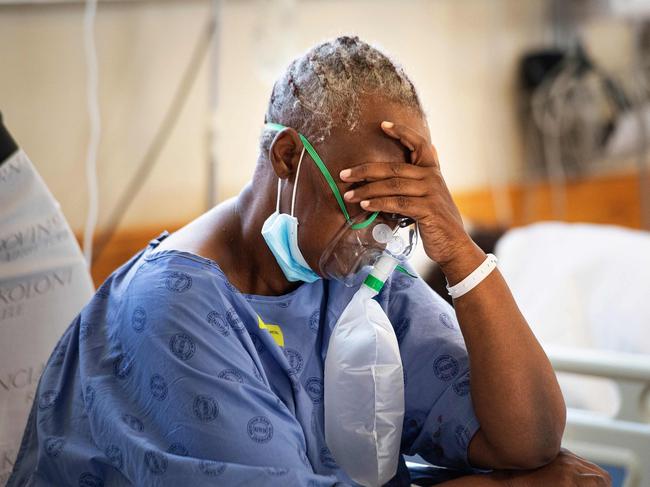
“That’s certainly a very, very strong position to be in, but we’re really carrying the message forward that it needs to be 100 per cent,” said O’Brien.
Coverage in the over-60s is at 69 per cent – though the figure falls to 24 per cent in some regions of the world.
So far, the WHO has authorised eight Covid-19 vaccines and versions thereof, giving them the green light with its emergency use listing (EUL) status.
The WHO EUL-approved vaccines are those made by Pfizer, AstraZeneca, Janssen, Moderna, Sinovac, Sinopharm, Bharat Biotech and Novavax.
The Covax facility, founded to ensure the poorest 92 countries in the world get access to Covid-19 jabs with the cost covered by donors, has so far shipped 1.42 billion vaccine doses to 145 territories, according to UNICEF, which handles the logistics.
The scheme has sufficient supply available for all those countries to achieve the WHO’s 70-percent coverage target by June.
Covax can only use WHO EUL vaccines.
AMERICANS MUST MANAGE OWN VIRUS RISK: FAUCI
Dr Anthony Fauci appeared to throw in the towel on more government restrictions over Covid-19 — insisting it’s now up to Americans to make their own medical risk assessments, according to the New York Post.
“This is not going to be eradicated, and it’s not going to be eliminated,” Dr Fauci told ABC’s This Week.
“And what’s going to happen is that we’re going to see that each individual is going to have to make their calculation of the amount of risk that they want to take.”
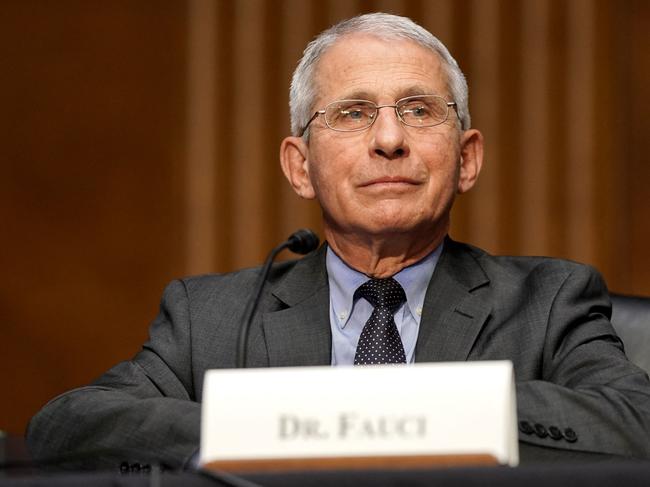
The White House chief medical adviser said Americans will have to consider factors such as their age, vaccination status and whether they live with vulnerable individuals when it comes to coronavirus precautions.
“We’re at that point where in many respects … we’re going to have to live with some degree of virus in the community,” he said.
“The best way to mitigate that is to get vaccinated. If you’re not, to get boosted if you’re eligible to be boosted.”
Dr Fauci’s comments about the state of the pandemic were in stark contrast to the more dire warnings he issued early on in 2020.
They also come amid the spread across the country of the now dominant BA. 2 variant, which is highly contagious but less severe than previous strains.
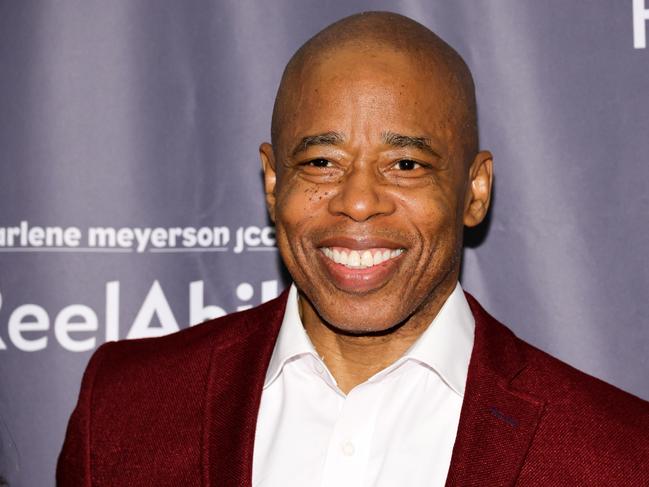
It comes as New York City’s mayor Eric Adams is the latest high profile US politician to test positive to Covid-19.
The first-term Democrat tested positive on Sunday after waking up with a raspy voice and plans to take antiviral medications and work remotely.
More Coverage
Originally published as Coronavirus world: Covid vaccine for ‘all variants’ planned for yearly jabs




